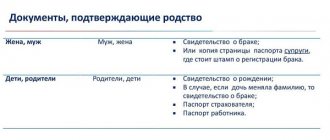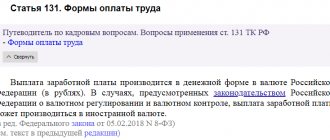List of sample powers of attorney to represent the interests of a child
ATTENTION! Look at the completed sample power of attorney to represent the interests of a child in a medical institution:
You can DOWNLOAD samples of powers of attorney to represent the interests of a child using the links below:
- Standard power of attorney to represent the interests of a child
- Power of attorney to represent the interests of the child to the grandmother in the hospital
- Power of attorney to represent the interests of a child in a medical institution
- Power of attorney to represent the interests of the child at school
- Power of attorney to represent the interests of the child in court
- Power of attorney to represent the interests of a child in kindergarten
We issue a power of attorney for the child to the grandmother from the parents
As a rule, if teachers or educators know the grandmother personally or know her in absentia, they can calmly give her the child. However, there are regions where everything is much more complicated - the administration has the right to transfer a minor child only to parents, and to third parties only with a power of attorney. This is due to the fact that school and kindergarten employees bear full responsibility for the life and health of a child in an educational institution.
Sample power of attorney
When the child turns 14 years old, such powers are transferred only to the official guardian. At this age, the child has the opportunity to independently draw up general documents, but this requires the consent of the guardian.
- travel outside the Russian Federation;
- making a decision on hospitalization or urgent surgery, treatment in a medical institution;
- interaction with government authorities;
- obtaining information about the child in medical, health, educational and educational institutions;
- carrying out actions affecting the property interests of a minor (for example, receiving a pension for a disabled child);
- participation in competitions and competitions leaving the locality of residence.
Organization of summer holidays for minor citizens accompanied by an adult within the borders of the Russian Federation does not require formal consent from their parents. It is enough to have the passport of the accompanying person and the birth certificate of the person under guardianship.
Notarised power of attorney
A grandmother is one of the closest relatives for a child after his parents. She is the one who takes an active part in the lives of minors. In Russia, it has long been considered the norm to leave children with their grandmother while mom and dad work, or simply bring them on weekends and holidays. Few people think that, despite her family status, she is not officially responsible for the life and health of minors.
07 Oct 2021 uristlaw 432
Share this post
- Related Posts
- List of Diseases That Cause Disability for Children in 2020
- Indexation of the Survivor's Pension for the Widow of Chernobyl in 2020
- Additional payment to pension for women who gave birth to 2 children or more in the 80s and 90s
- Benefits for labor veterans Veliky Novgorod
How to draw up a document correctly
To draw up a document, you can use the services of a notary. This method is the most reliable. In this case, you should remember the following detail: the established form of power of attorney must be used.
Note! That is, the document must meet the following requirements:
- be created on paper in written form,
- In order for a power of attorney to have legal force, it must contain the following points: name, date of preparation, locality,
- contain passport information of participants in the transfer of powers. In this case, the full name of each party is written in full. Regarding information from citizens’ passports, it is assumed that the following information must be included in the power of attorney: by whom it was issued, date of issue, series and number,
- the rights and obligations of the parties must be indicated. Authority should be recorded in detail. It is imperative to take into account the nuances of the current regulatory framework,
- The document may contain some prohibitions. For example, on the right of subrogation,
- a power of attorney may have a limited validity period, which is determined by the two parties to the relationship themselves. However, if no period is specified, the duration of its validity is not limited. It should be noted that fixing the date of issue of the document is an indispensable condition, since only in this case it acquires legal force,
- the period of validity may be limited in advance by a period or even an event. In addition, you can take into account the time it will take to complete a certain task related to the child,
- It is imperative to put the signature of an authorized person, which confirms the intention and agreement with the transferred responsibilities:
- in case of interaction with government agencies, a seal must be present on the document, which will give it legal force.
Watch the video. The notary advises: how to draw up a power of attorney?
Types of powers of attorney
Depending on the situation, options may vary. For example, a grandmother or other person can receive three options for a document from a legal representative in the form of a parent:
- one-time make up for one action. An example would be a trip to a foreign resort;
- a special one is issued for a number of actions that are prescribed in the document;
- The general gives the person the maximum set of powers.
Also, paper may differ in the design method. Each of them has its own characteristics.
Notarised power of attorney
According to the law, a number of cases require a notarized version.
An example would be taking a child abroad. In such a situation, there must be a document that is properly executed and must be notarized. The paper includes the following data:
- Name;
- date and place of registration;
- information about the principal and authorized representative with full name and passport data, which includes the entire list of necessary information;
- information about the child and relationship with the principal;
- the powers of each party in expanded form, that is, points indicating the situation are indicated;
- possible transfer of powers or prohibition of such actions;
- validity periods;
- signatures of the parties, including the principal.
Important! The legal representative must sign it. Otherwise, the document will not have legal force.
The following documents are required for registration:
- passports of all parties;
- birth certificate of the minor and his passport, if available;
- civil status certificates, such as divorce.
Read also: Alimony if the husband does not officially work
The notary may refuse the registration procedure if the necessary documents are not provided or there are grounds to believe that the process is illegal. For example, one of the parties is incapacitated or in an inadequate state.
Handwritten power of attorney
A handwritten version is often used, which is drawn up according to a standard scheme indicating all the necessary data. It is important here to exclude possible errors of any type.
If desired, the handwritten form can be handwritten or printed. The main thing is the fulfillment of mandatory requirements and the presence of signatures of the parties.
Important! If the document does not indicate a validity period, then such paper will be valid for one year.
General power of attorney
The general document type is rarely used. There are several important nuances here:
- such a paper means a full set of powers and the ability to dispose of the property of a minor. An example would be managing a company until a child reaches adulthood;
- all transactions are under the control of the guardianship authorities;
- receipt of this type requires permission from the guardianship and trusteeship authority, which issues consent in writing.
It turns out that the general document temporarily shifts all the rights and obligations of the legal representative to another person.
When a power of attorney may be needed
In some situations, it is possible for the child himself to defend his interests on his own. To do this, one condition must be met - he must have legal capacity. This is done through a mechanism that can be initiated by authorized bodies. They have the right to confirm in writing that the minor has legal capacity.
If a minor wants to take steps to establish legal capacity, then there is one chance for him - this is marriage, which can be concluded after reaching fourteen years of age, and only with the consent of guardians or parents.
His parents have the right to be a representative of a child without the above-mentioned document if they have documentary evidence of this fact. To represent the interests of the child, it will be enough to show a passport to the authorities, which indicates the relationship with him.
Do you need a power of attorney for a child in Russia?
A random person cannot represent a child; he must meet specific requirements. The main conditions in such a situation will be the person’s majority and legal capacity.
It is necessary to take into account the fact that a person aged fourteen to eighteen years has the right to issue a power of attorney to represent his own interests to other persons without the need to obtain the consent of parents or guardians.
Do I need to get it certified by a notary?
A power of attorney can be drawn up either by the principal himself or by a specialist from a notary office, if there is a desire to contact him. It is worth knowing that notarization of a document is not an indispensable condition; it can simply give greater confidence in the legality of what is happening.
Citizens have the right to agree on important details, but the interested adult citizen will still have to obtain a power of attorney from a notary office. It is clear that in any case, a notarized power of attorney deserves a more loyal attitude, but the judicial authorities do not attach much importance to where it is drawn up.
Attention! Our qualified lawyers will assist you free of charge and around the clock on any issues. Find out more here.
The notary is obliged to verify the will of the principal. The current legislation of the Russian Federation provides for the following rule: parents, guardians or trustees have the right to issue a general power of attorney.
It is worth noting that the regulations do not establish the fact that a child can apply to a general power of attorney related to certain movable or immovable property, because it has significant property risks, but there are no prohibitions on such actions.
However, if the relationship is connected with a decrease in the state of property or expenses, the permission of the guardianship authorities is absolutely necessary to carry out such actions. For this reason, in order for a document to have legal force, permission from the guardianship and trusteeship authorities is required. At the same time, judicial authorities can easily accept a regular document, but exceptions are possible, so everything is determined individually.
Notarized power of attorney for representation of interests
How to issue a power of attorney for a child to a grandmother, read here.
Is the father's consent required for a child to travel abroad with his mother? Read the link: https://novocom.org/semya-i-deti/nuzhno-li-razreshenie-otca-na-vyezd-rebenka-za-granicu-s- materyu.html
Additional features and nuances
- The services of a notary agency employee are paid, the cost depends on the type of office (public, private), the applicant’s city of residence, the price list of a particular institution and other parameters. On average, the cost of document certification will cost 700-2000 rubles. If parents order additional notary services, the final cost will be higher.
- As for the validity period of the power of attorney, parents determine this indicator independently. If applicants do not indicate the validity period of the document, it will be 1 year according to the Civil Code. If it is necessary to renew the power of attorney, parents will need to draw up and certify a new document.
- If a child is already 14 years old, then he has the right to independently draw up a power of attorney to represent his own interests to other people. The permission of the father, mother or guardians is not required for this action.
- In most cases, a power of attorney is drawn up in a simple form. If parents leave Russia for a while, leaving the child with their relative (grandmother, grandfather, sister, brother, etc.), then a general power of attorney will need to be drawn up. It denotes the transfer of all human powers. The attorney has the rights to transfer property rights, sign all documents, and represent any interests of the minor.
- In a situation where parents are away for a long time, they may be faced with the need to carry out the procedure for registering temporary guardianship by contacting employees of the guardianship and trusteeship authorities. If representatives of the institution approve the application, then the grandmother, grandfather or other suitable relative will register guardianship by contacting the registry office. In the absence of this procedure, representatives of the guardianship authorities can intervene in the current situation and begin a procedure to deprive the father and mother of parental rights. If this happens, the parents will be given 6 months to challenge the decision, and the child will live in an orphanage or shelter during this time.
Cost and documents for certification
Notarization of a document is not necessary in all cases, but if you need to contact a notary, this service will be paid. The cost will vary from seven hundred to two thousand rubles. This includes the state fee, as well as the cost of the notary's actions. The second part varies depending on the company.
Important! You will be able to register a document with a notary if you present the following package of documents:
- the child’s birth certificate or passport if he or she reaches the age of fourteen,
- identification document of both parents. In a situation where one of the parents has died, you must provide the issued death certificate,
- a certificate confirming the conclusion of an official marriage between the child’s parents,
- identity document of the attorney,
- birth certificate of one of the parents. It may become necessary if it is necessary to prove that the father (mother) is the child of the grandmother's (grandfather's) attorney.
The list may be expanded depending on the specific situation.
Documents submitted to notary office specialists must be submitted in originals.
Both parents must be present during the notarization. If the power of attorney is created directly at the notary's office, and not in advance, the presence of an attorney will be required. There is no need for the child to be seen by a notary.
Do I need a power of attorney for a child when traveling abroad with his mother?
Power of attorney from a minor
A power of attorney provides a chance to formalize powers over a minor. It should be noted that children from six to fourteen years of age traditionally have partial legal capacity established by current legislation, and minors from fourteen to eighteen years of age have incomplete legal capacity. In this case, full legal capacity is possible upon reaching the age of eighteen or in the event of emancipation after sixteen years.
At the age of fourteen to eighteen, a general power of attorney can be created by a minor upon receipt of the written consent of the parents or guardians.
Sample and form of power of attorney for a child in 2021
- The names and passport details of the father and mother, as well as the citizen with whom the teenager will travel, must be recorded.
- The full name of the baby, the day of his birth and all the details from the document confirming his identity (passport, if he is 14 years old, or birth certificate) must be written down.
- The powers of the trustee must be specified.
- It is required to note the date of acquisition of the power of attorney and the duration of its validity, although the period may not be specified.
- Notarized confirmation of such a form is mandatory when moving across the Russian Federation. When leaving the Russian Federation, such consent must be certified by a notary.
Across Russia
When traveling around the Russian Federation, there is no need to draw up a power of attorney for a teenager. At the same time, having such a form can be useful. So, if it is available, neither train conductors, nor airplane and ship crew workers, nor the transport police will have questions about accompanying a child by an adult citizen.
Due to the fact that the population attending preschool institutions consists of young children, the most defenseless and susceptible to the influence of adults, the management of kindergartens requires parents to give a written assignment to one or another person to accompany the child home.
The grandmother often performs parental functions in relation to minors. Due to her retirement, she can constantly look after the child, take him to kindergarten or school, to various sections and clubs. A huge number of generations have grown up under the supervision of their grandmothers, and before no one even thought that this fact should somehow be formalized in documents.
Types of powers of attorney
- travel outside the Russian Federation;
- making a decision on hospitalization or urgent surgery, treatment in a medical institution;
- interaction with government authorities;
- obtaining information about the child in medical, health, educational and educational institutions;
- carrying out actions affecting the property interests of a minor (for example, receiving a pension for a disabled child);
- participation in competitions and competitions leaving the locality of residence.
It is important to note that children from six to fourteen years of age are traditionally granted partial legal capacity before the legislation of the Russian Federation, and adolescents from 14 to 18 years of age are given incomplete legal capacity. In this case, full legal capacity is obtained upon reaching eighteen years of age or upon emancipation after sixteen years of age.
Quite often, situations arise when parents want to send their child somewhere, for example, on summer vacation, but they themselves do not have the opportunity to accompany him. In such situations, you need not only to find a temporary guardian, but also to issue an appropriate power of attorney. For example, when sending your child abroad, you will need to issue a power of attorney, which is a kind of permitting document. It allows the child to travel to another country without parents. However, in most cases, during the summer holidays, children go to their grandmothers in the village. In this case, a power of attorney is issued for movement within the state.
Features of a power of attorney
Also, one parent can write a power of attorney if he has documents confirming that the second parent has been deprived of parental rights, is in prison, has gone missing, died, or the child has been recognized as fully capable. If a minor is planning to travel around Russia, but it is not possible to obtain the signature of the second parent, a power of attorney from one parent is also suitable for such a trip. In this case, the accompanying person will represent the interests of the parent who drew up this power of attorney.
This is interesting: The house was built at 2.5m. From Fence Not Registered
It is also worth noting that when a child reaches 18 years of age, a power of attorney loses its meaning, since from this age a person acquires legal capacity and the right to independently make decisions on any issues.
Power of attorney forms
A power of attorney can be simple or general. The execution of a general power of attorney provides for the transfer of the entire range of powers of a person, that is, property rights, the right to sign various acts and represent the interests of the person are transferred.
Note! A general power of attorney can be used in situations where a parent leaves the country for a long time and trusts relatives or another person to raise their own child.
A simple power of attorney has only a specific list of powers that the principal grants to the authorized person. If there is a civil dispute that is being considered in court, then you can create a power of attorney to represent interests in a judicial body.
Basic Concepts
If a person cannot, for some reason, independently represent his interests in court or other organizations, then he can transfer this right to other individuals or legal entities.
Such situations occur, for example, when the interests of a citizen are represented in court by his lawyer; if we talk about children, they do not have the right by law to independently represent their interests; care must be taken to ensure that his representative is interested in protecting the rights child and create conditions for a normal life and development.
Representing the interests of a citizen means “replacing” his presence , having the right to certify certain documents on his behalf and the right to vote. The entire list of powers that are transferred to the children's representative are usually prescribed in a notarized power of attorney; within the framework of this list, the intermediary can act in the interests of his principal.
Powers can be transferred from a manager to an executor, from a child to a guardian or parent, from a citizen to his relative or other person. A power of attorney can be issued by both an individual and a legal entity.
Can only one parent give a power of attorney?
It is advisable that both parents sign the power of attorney, but there are situations when, for some reason, it is not possible to obtain the consent of one of them. Will a document executed only by the mother or only by the father be valid?
The law does not prevent the issuance of such powers of attorney. In such a situation, the attorney will carry out the mission assigned to him on behalf of only one of the parents. If it is not possible to certify the power of attorney from both the mother and father, the signature of one of the parents will suffice.
Watch the video. Power of attorney for kindergarten:







